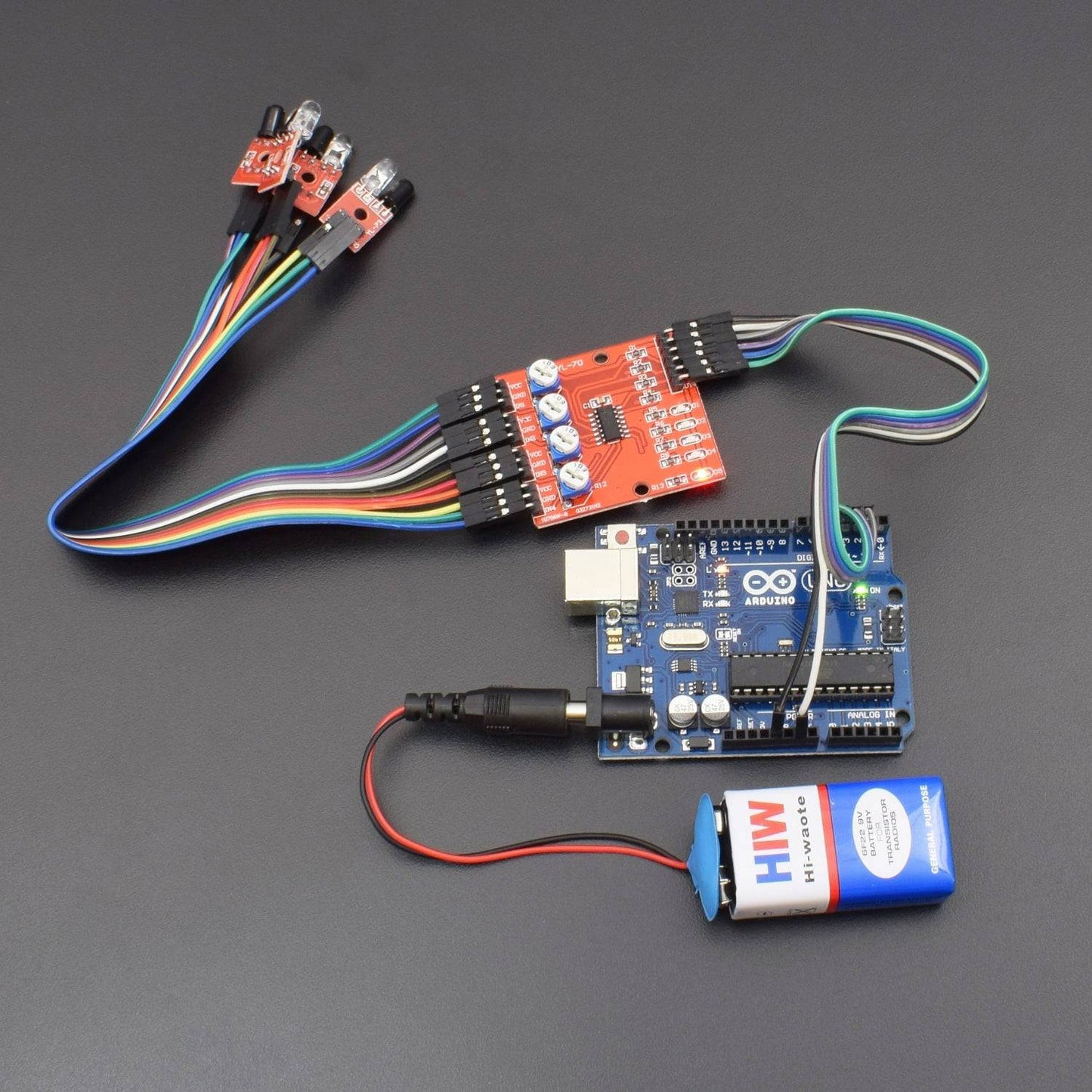
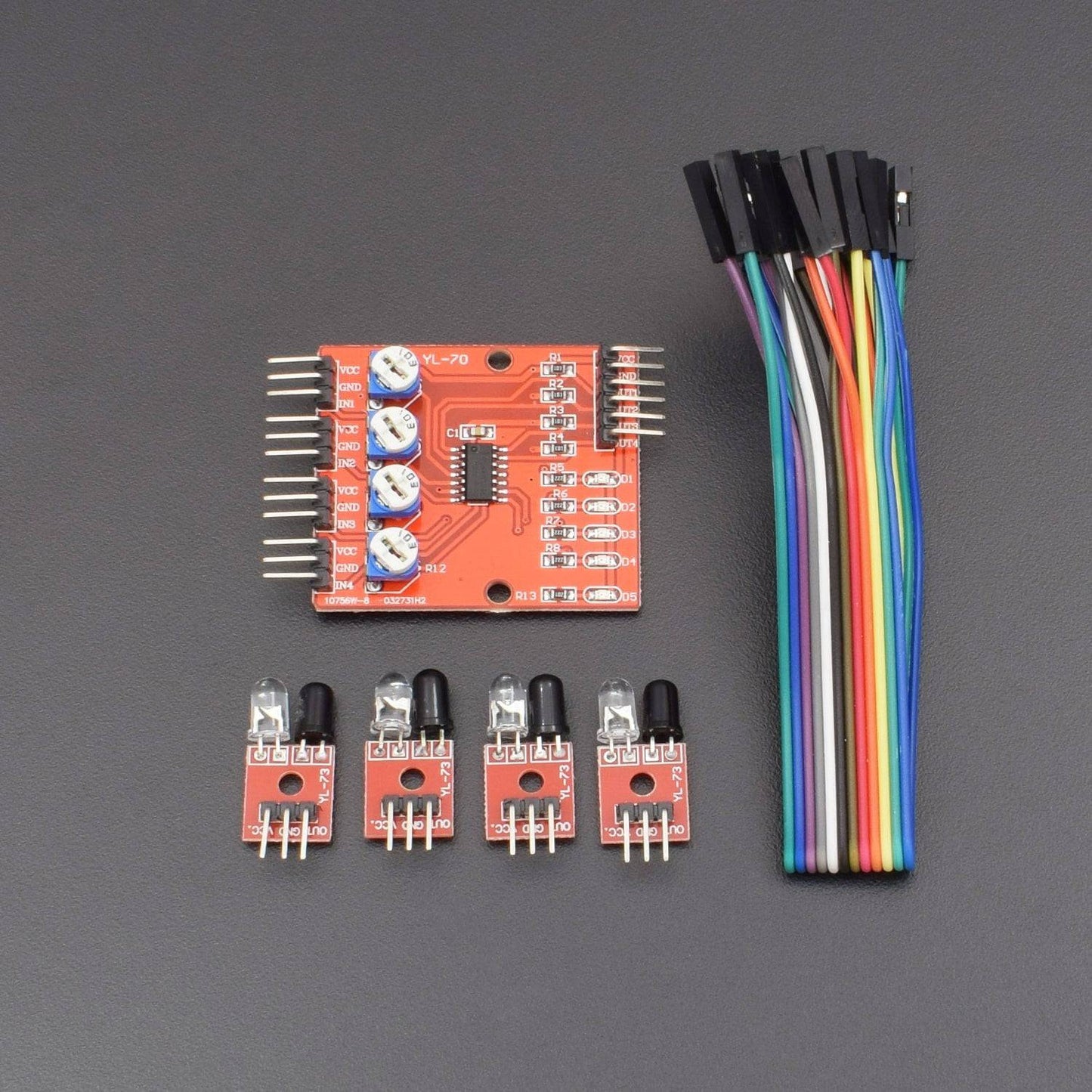
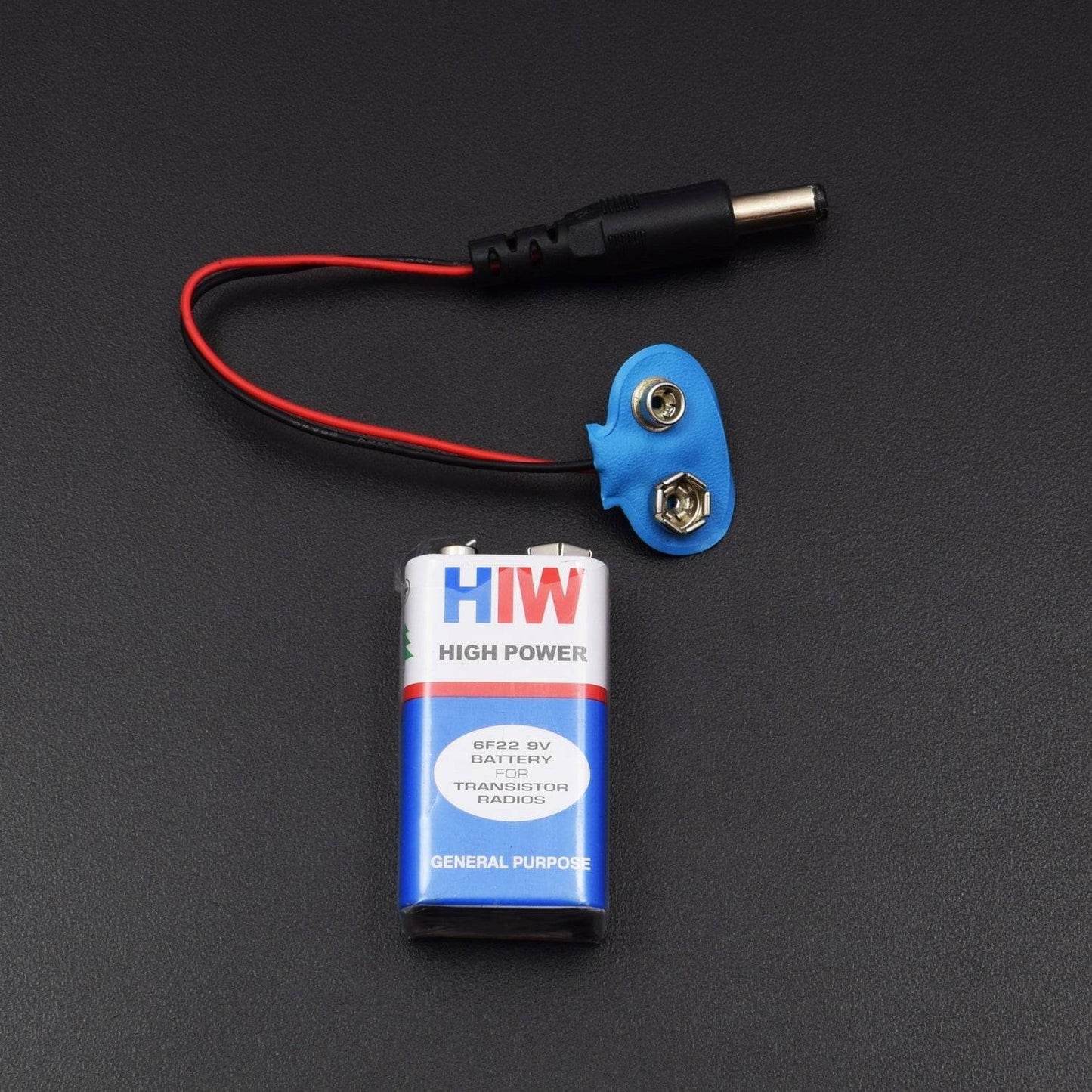
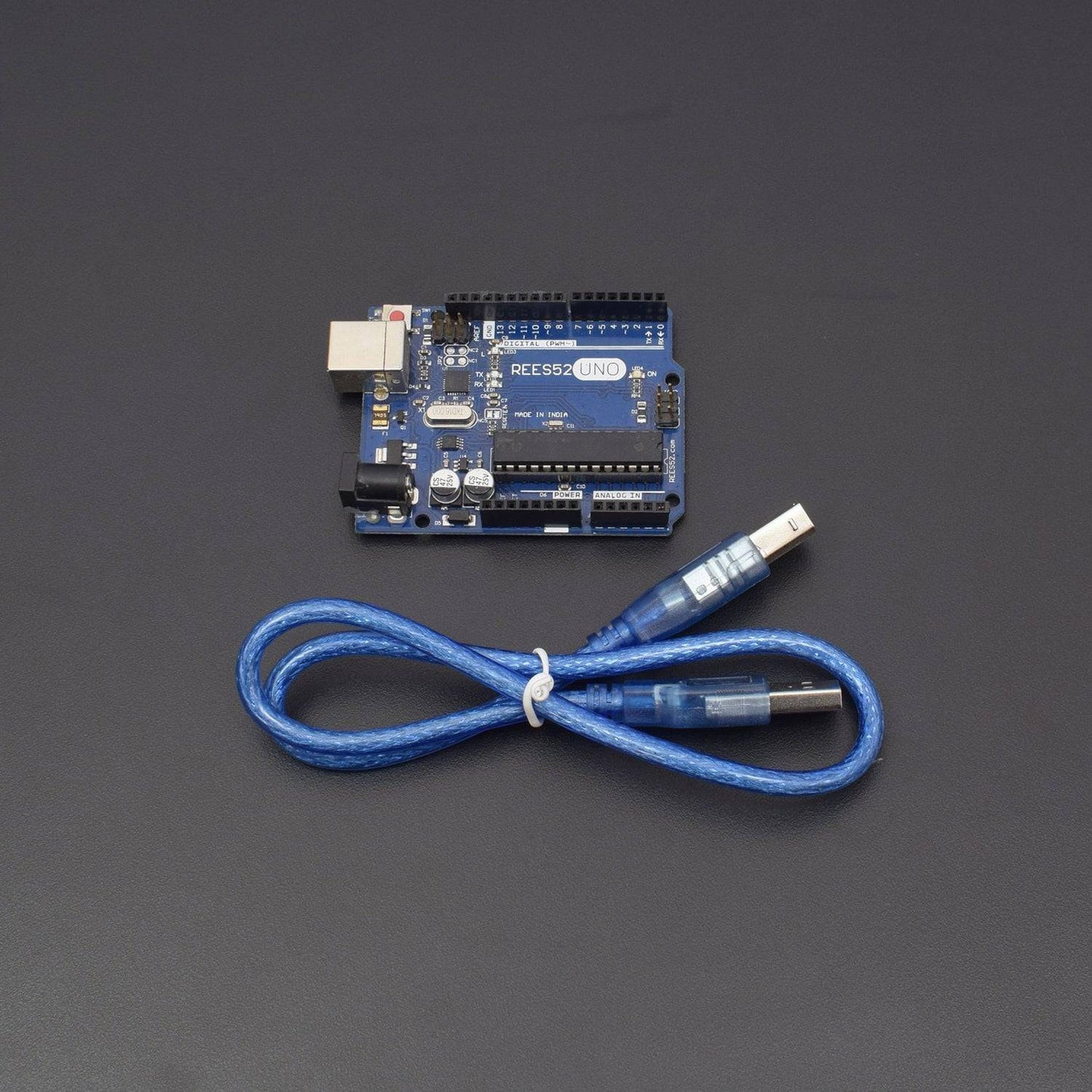
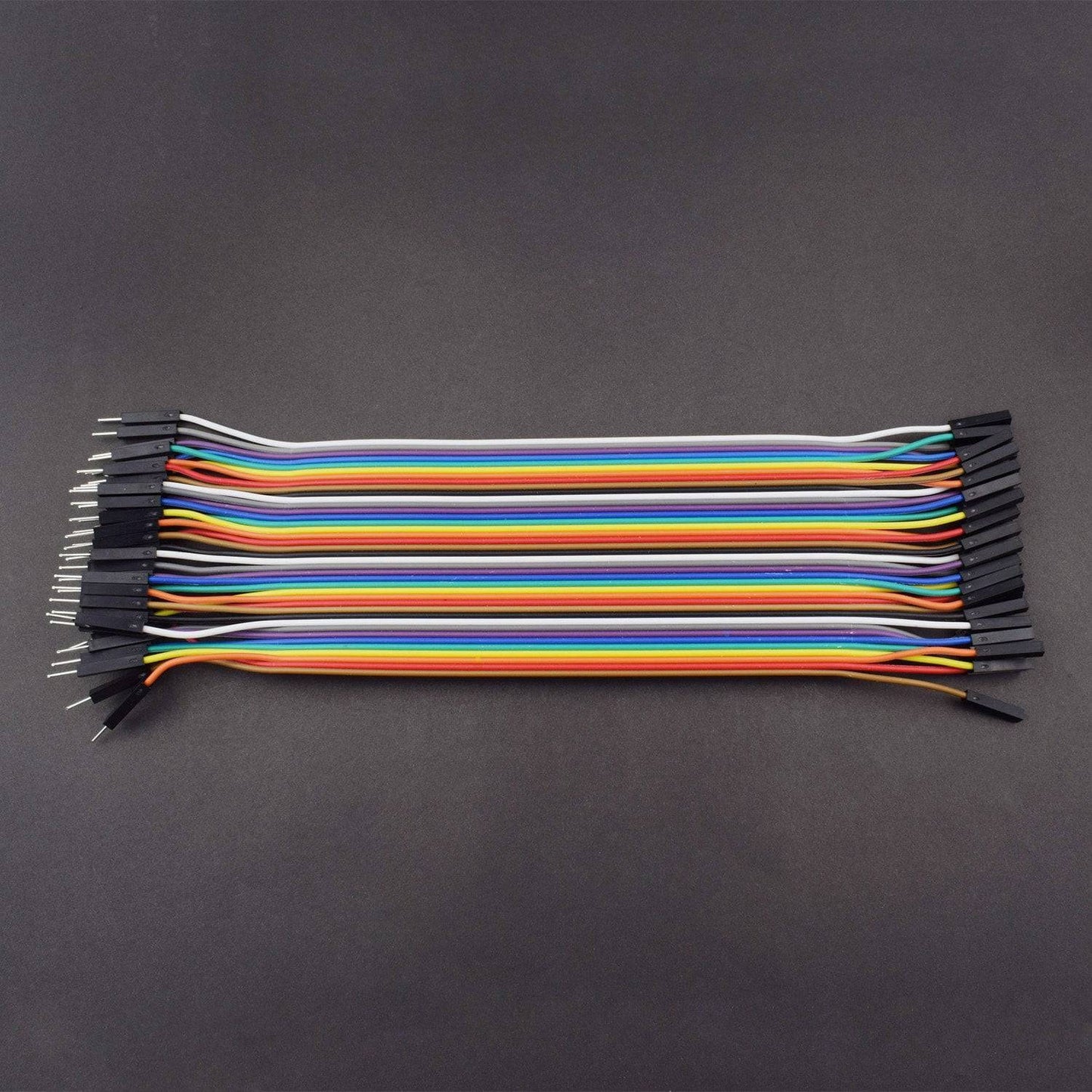
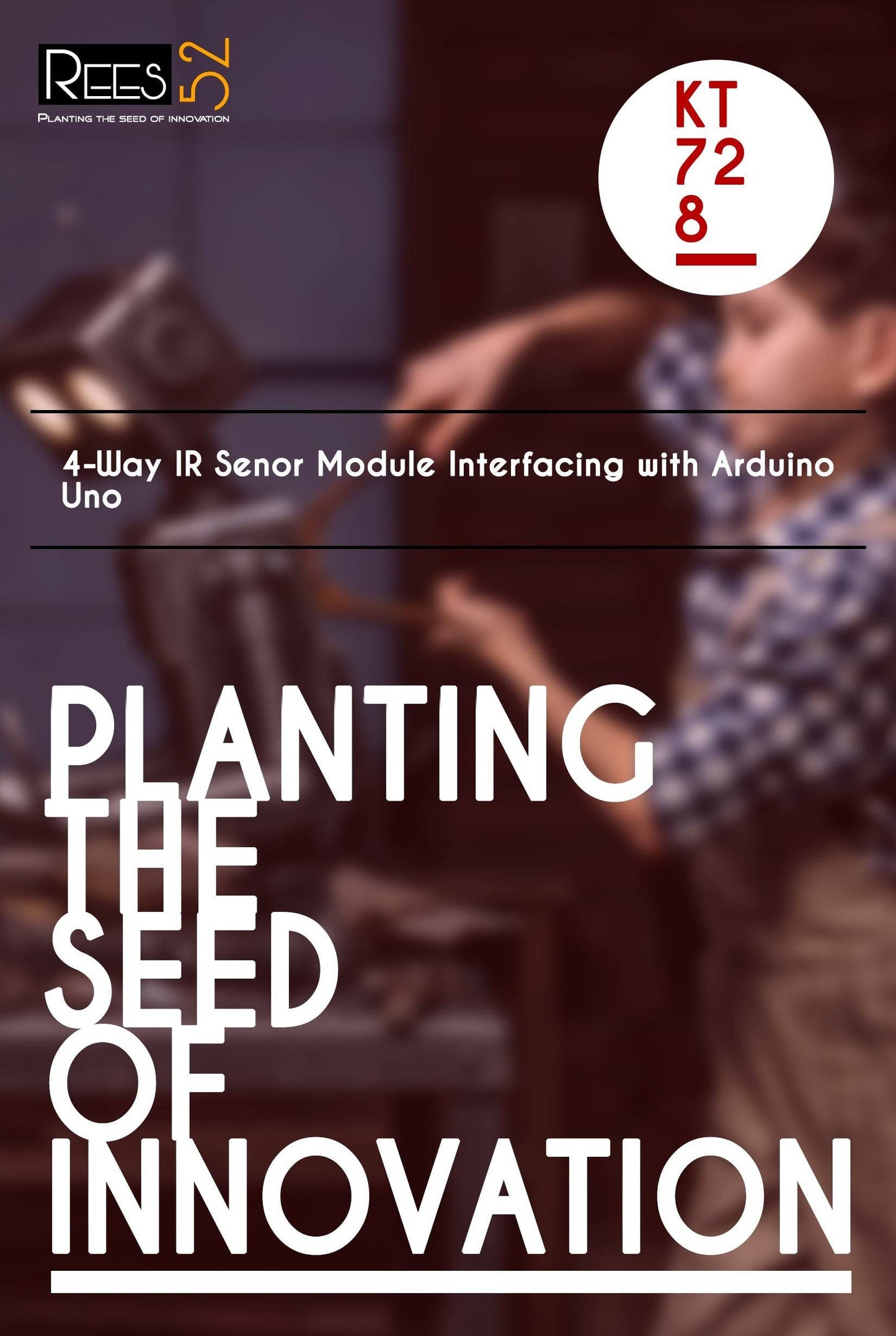
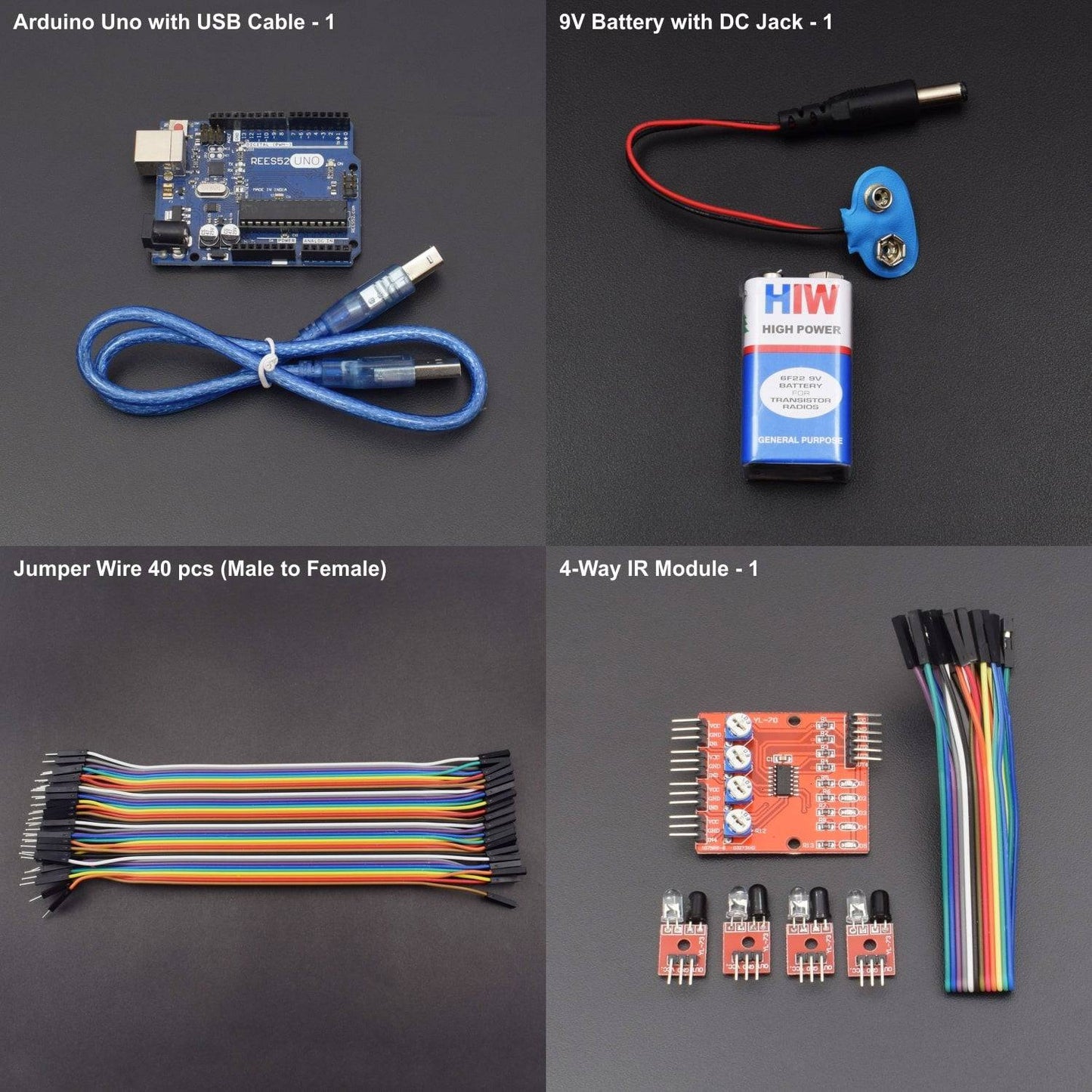
KIT INCLUDES:
- Arduino uno with USB Cable – 1
- 9V battery with DC Jack – 1
- Jumper wire male to female – 40 pieces
- Jumper wire male to male – 40 pieces
- 4 way IR Module - 1
HARDWARE REQUIRED
- Arduino uno with USB Cable – 1
- 9V battery with DC Jack – 1
- Jumper wire male to female – 40 pieces
- Jumper wire male to male – 40 pieces
- 4 way IR Module - 1
SOFTWARE REQUIRED
Arduino IDE 1.8.5 (programmable platform for Arduino)
Click To Download :https://www.arduino.cc/en/Main/Software
SPECIFICATIONS
4 way IR sensor Module
- Operating voltage: DC 3.3V-5V
- Operating Current:>1A
- Operating temperature: -10 - +50
- Mounting Hole: M3 screws
- Detection distance: 1mm to 60cm adjustable
- Output Interface: 6-wire (1234: signal output, +: positive supply -: ground)
- Output signal: TTL level
The 4-Channel Line Tracker sensor provides an easy way for line tracking. A line sensor is composed of a number cells and each cell is composed of a sender and a receiver. The particularity of this sender/receiver pair is that it sends light that shall be reflected by the line to be detected but not by the eventually opaque background surrounding this line. Any sender/receiver pair that is able to make a difference between a line and the rest of ground (of a different color) can be used in a line sensor.
PIN DESCRIPTION
4 way IR sensor Module
- VCC: 3.3V-5V DC
- GND: ground
- OUT1: high/low output
- OUT2: high/low output
- OUT3: high/low output
- OUT4: high/low output
Sensor Module
a. VCC-VCC
b. GND-GND
c. IN-OUT
CIRCUIT CONNECTION

The components to be used are:
- microcontroller (any compatible arduino)
- 4-channel line tracker sensor
- Pin connectors
- Breadboard
- USB cable

- Connect the 4-channel sensor module to the control module.
- Connect the components based on the figure shown in the wiring diagram using pin connectors. VCC pin is connected to the 3.3V or 5V power supply, GND pin is connected to the GND, OUT1, OUT2, OUT3, and OUT4 pins are connected to the digital I/O pin. Pin number is based on the actual program code.
- After hardware connection, insert the sample sketch into the Arduino IDE.
- Using a USB cable, connect the ports from the microcontroller to the computer.
- Upload the program.
- See the results in the serial monitor.
CODE
void setup()
{
Serial.begin(9600);
} void loop()
{
Serial.print(digitalRead(2));
Serial.print(" ");
Serial.print(digitalRead(3));
Serial.print(" ");
Serial.print(digitalRead(4));
Serial.print(" ");
Serial.println(digitalRead(5));
delay(500);
}
WORKING
The serial monitor shows the results upon moving the line tracker sensor in a white background to a black line.
The sensor module has a HIGH output when subjected to the black line.

















